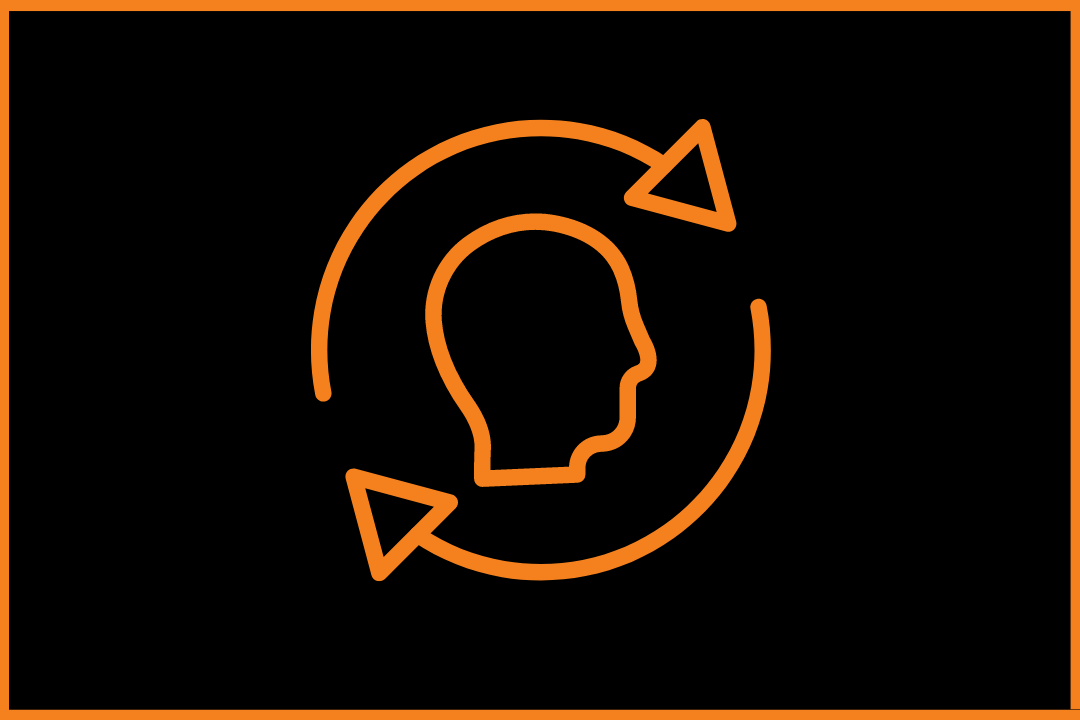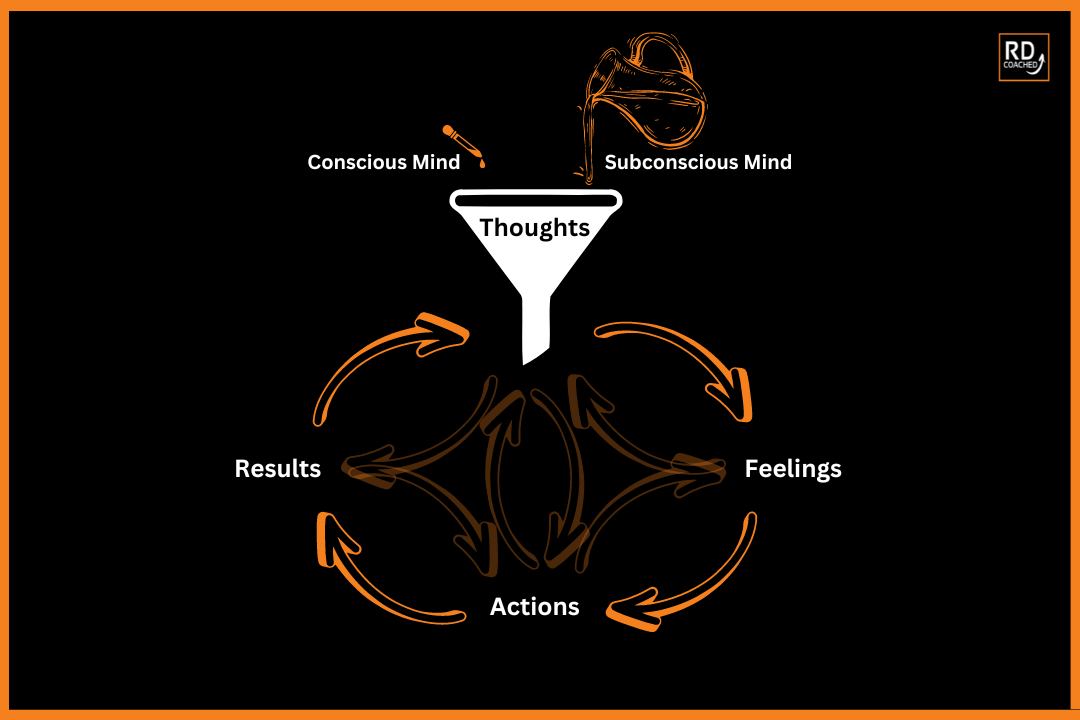🔑 5 Key Influences Behind Imposter Syndrome
In this issue, I'm exposing the 5 key influences behind Imposter Syndrome and how they're contributing to making it even worse…
This is the second part of my Imposter syndrome series.
In this issue, I'm exposing the 5 key influences behind Imposter Syndrome and how they're contributing to making it even worse…
You can delve into more detail in part 1 - Is it really Imposter Syndrome? But let’s recap briefly here with a definition and a brief summary.
Imposter Syndrome: A psychological pattern in which an individual doubts their skills, talents, or accomplishments and has a persistent internalised fear of being exposed as a "fraud", despite evidence of their competence.
To Summarise Imposter Syndrome
👉 It’s caused by HOW you think.
👉 This way of thinking is persistent.
👉 Evidence exists of your competence.
With that covered, let’s kick on.
How does it take hold?
As I see it, we need to consider five key influences that, when combined in the “wrong” way, can lead to feelings of imposter syndrome and its consequences.
The five key influences behind imposter syndrome:
👉 Habits
👉 Beliefs
👉 The Subconscious Mind
👉 Your Wellbeing Processor
👉 Thought Recursion
Let’s dig a little deeper into each one.
1. Habits
Ok, maybe not the habits you’re thinking of; I’m referring to your brain and its habitual thought patterns.
Although, your other habits will play a role, too.
Your brain is highly habitual, which can be a great power and a terrible curse.
One such habit is how often you lean on your beliefs.
Your beliefs practically define you, so you’ll encounter them a lot.
The more you think about them, the stronger they become.
The stronger they become, the more you think about them…
You get the idea. We'll discuss why this is important shortly.
In addition to our strongly held beliefs, many of us neglect to pay attention to what we expose our brains to and through sheer repetition, we’ve learnt quite negative or unhelpful patterns of thinking…
Unfortunately, your brain has retained these unhelpful thought patterns, which contribute to your self-belief and the world around you.
I want to stress that you haven’t done anything wrong here…
Powerful forces, such as the news, societal expectations, TV (Netflix, YouTube), and social media, constantly tug our attention in multiple directions.
These forces are so pervasive that we fail to acknowledge their influence and the beliefs we form based on them.
2. Beliefs
The beliefs you hold about yourself are a key influence behind imposter syndrome. Probably one of the more obvious influences, right?
If you believed your skills were up to scratch, that you worked hard for every opportunity, and deserved to be where you are right now…
You probably wouldn’t be reading about imposter syndrome…
Your beliefs are a powerful concept, so much so that you accept them as true or real by definition.
YES, even when they aren’t…
You rarely question them, and this is where things can get a bit sticky.
Some of those beliefs might not reflect who you are now.
They might have been formed in a completely different context.
And yet, they are playing a significant role in shaping your reality, now.
Beliefs can be formed in several ways, one being through sheer repetition, which is why we need to be so careful about what we give our attention to.
Like your habitual thoughts, your beliefs are embedded in your subconscious mind and given priority status…
3. The Subconscious Mind
Another key influence behind imposter syndrome is your subconscious mind.
It is responsible for holding on to those unhelpful, habitual thoughts, and sometimes stitching thoughts together to create rather unhelpful narratives.
Training your subconscious
Your subconscious mind is your own version of chatGPT, trained on data your conscious mind has provided over your lifetime.
It doesn’t question the data it’s trained on.
If that data is unhelpful, well, that’s on us…
In other words, Garbage In, Garbage Out…
If you constantly consume negative, unhelpful content, your subconscious mind will deliver that back to you.
Indexing & retrieval
Your version of chatGPT must index all of this data for fast retrieval.
It creates shortcuts linking together ideas, concepts, opinions, beliefs, places, people and anything else you can think of.
These shortcuts are called neural pathways.
The more these neural pathways are accessed, the higher their priority becomes, and the ease and speed of access improves.
Again, to accomplish super-fast retrieval, it employs a cache to save you from digging deeper than necessary into all those neural pathways.
This cache has been neglected and rarely, if ever, gets cleared.
The result?
You’re left with unhelpful thoughts (and beliefs) stored in your cache, ready to be called upon at a moment’s notice.
Autopilot
What makes the subconscious mind so important is this:
Some studies suggest that between 60% and up to 98% of your brain's activity takes place in your subconscious mind.
In other words, your subconscious mind is your autopilot and is responsible for so much of what you think, feel and do.
For example, think about when you’ve been driving for a while, and suddenly you think, how did I get here?
You didn’t crash because your subconscious mind has performed those actions to drive your car so many times; it just knew what to do and didn’t need to bother your conscious mind with it…
Leaving you free to think about the many wonders of software engineering…
4. Your Wellbeing Processor
Your Wellbeing Processor is fundamental to understanding your wellbeing.
So, let's dive in.
Your mind is juggling thoughts constantly.
Those thoughts come from two sources.
A small fraction comes from your conscious mind.
You choose to think these thoughts at any given moment.
The majority come from your subconscious mind.
It’s like we are constantly asking our own version of chatGPT,
🤷♂️ “How should I think about this?“
Based on the data it’s been trained on, some of its answers can be pretty unhelpful.
You feel the full force of those thoughts when you give them your full attention, link them to your identity and believe them unquestioningly, which many of us do without realising.
So, when you have thoughts such as:
👉 I’m not as good as they think I am…
👉 They’re going to find me out…
👉 I don’t deserve my current role…
Those thoughts are driving feelings of a similar sentiment.
They produce a cocktail of unhelpful emotions.
Subsequently, that way of feeling will drive your actions, or inaction in some cases.
For example:
Thought: I’m not performing well.
Feelings: Under pressure, anxious, and stressed.
Actions: Try to “catch up” at the expense of your mental health and family relationships.
Results: Poor work-life balance and strained relationships.
You’ll then think about your results and the cycle continues…
A quick recap
You have mental habits that have filled your subconscious mind with many unhelpful thoughts.
You’re harbouring strongly held beliefs that could be outdated and no longer relevant.
Your subconscious mind is trying to be helpful by making these really fast and easy to access. It supplies you with many of these thoughts.
You inevitably pay attention to them and feel their full force via your Wellbeing Processor.
Sounds pretty gloomy, and unfortunately, there’s one more piece of the gloomy puzzle to come…
Thought Recursion
Thought Recursion is an extension of the Wellbeing Processor.
To keep it simple, sometimes, we let our unhelpful thoughts take hold and become recursive.
With each call, those thoughts grow, as does their level of unhelpfulness.
You start to entertain “What ifs”, introduce fears, worst-case scenarios…
You’re catastrophising now, and you experience the feelings associated with the catastrophes you’ve thought up.
We've all done this once in a while.
Our brains are super habitual.
It could become harder and harder to recognise if you think like this frequently.
This is a big part of imposter syndrome, thinking a particular way without realising it.
Those feelings will impact your actions.
Your actions are unlikely to be productive when you feel the results of unhelpful thought recursion.
As with most things in life, the first step to change is awareness.
Hopefully, you know more than you did before reading, and you can spot those less-than-helpful thought patterns and beliefs….
Rich’s Recommendations
Check out my recommendations to improve your wellbeing, mindset, leadership or tech skills:
👍 Basma Taha - Your Guide to Fast-Track Your Software Engineering Career.
Newsletter: An Engineer's Echo
👍 Hemant Pandey - Writes about career growth, study abroad and life experiences.
He's a Tech Lead at Meta.
Newsletter: The Hustling Engineer
👍 Crushing Digital - Dave Roberts
Get help to stand out in the market, land more interviews and get the job you deserve.
👍 NK’s weekly newsletter to learn system design:
Newsletter: System Design Newsletter
👍 Dev Leader’s weekly newsletter to help you level up as a software engineer!
From a Principal Engineering Manager at Microsoft.
Newsletter: Dev Leader Weekly
👍 John Crickett’s weekly coding challenge to help software engineers level up:
Newsletter: Coding Challenges
Closing
We’ve exposed 5 key influences behind imposter syndrome and detailed the role each plays in how it takes hold and even grows due to the habitual nature of your brain.
In part 3, I’ll cover imposter syndrome's impacts on software developers and I’ll share my story.
Part 4 will be How to beat Imposter Syndrome…
In the meantime, be more purposeful about what you expose your conscious mind to, and consider the impact it could be having on your subconscious mind (autopilot)…
Remember
There's nothing more important than your own wellbeing!









